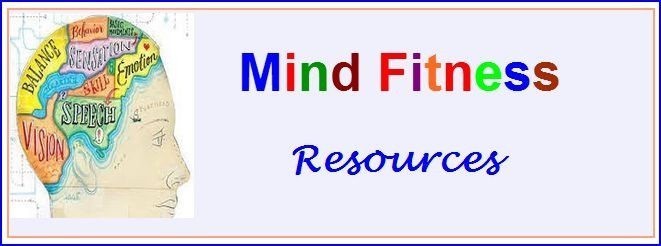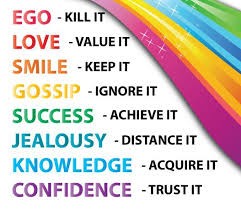
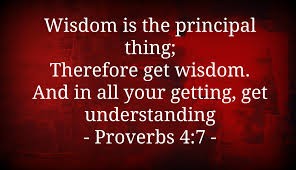
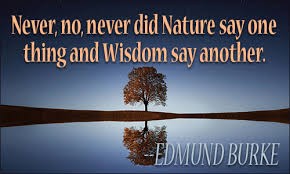


Living in TAO
Stephen Lau
Stephen Lau


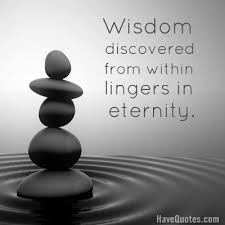
DIFFICULTY IN PRACTICING TAO WISDOM
Lao Tzu understands the difficulty and human challenge in putting his wisdom in practice and application:
“Can we embrace both fortunes and misfortunes in life?
Can we breathe as easily as innocent babies?
Can we see the world created as is without judgment?
Can we accept both the desirable and the undesirable?
Can we express compassion to all without being boastful?
Can we watch the comings and goings of things without being perturbed?
Saying ‘yes’ to all of the above is spiritual wisdom from the Creator,
who watches the comings and goings in the world he created.”
(Lao Tzu, Tao Te Ching, Chapter 10)
Even spreading the Word to non-believers is a big challenge in itself.
“But spreading the truth about the Creator
may be unexciting and unattractive to many.
People prefer misleading distractions.
People love empty promises.
The truth about the Creator
is profound but unpopular.
Look at it; it is invisible.
Listen to it; it is inaudible.
Use it; it is inexhaustible.”
(Lao Tzu, Tao Te Ching, Chapter 35)
With Tao wisdom, we just have to embrace that challenge and let the Creator take care of the rest.
“The more we understand the Way,
the less we need to convince others.
Those, who speak much,
know little about the Way.”
(Lao Tzu, Tao Te Ching, Chapter 56)
To accept and overcome the great challenge in understanding human salvation and spreading His Word, humility once again holds the key to success.
“Seeing ourselves indiscriminately as everything, including success and failure, we see not only the manifestations but also the mysteries of the creation.”
(Lao Tzu, Tao Te Ching, Chapter 13)
Stephen Lau
Copyright©2018 by Stephen Lau
*******************************************************************************
CONTROLLING AND LETTING GO
Thanks to our artists, we all pretend well; but deep down the layer of pretense is the awareness of the underlying reality. To suppress that reality, we turn to controlling, which is a subconscious way to enhance the reality of our expectations in life.
Most of us are controlling to some extent. Thanks to our culture, underlying every one of us is the inherent belief that we should be in control of everything around us at all times. The American culture advocates control for self-independence and survival.
What exactly is controlling? Why makes people want to control others as well as their own destinies?
Controlling is a coward way of running away from everyday problems; it is a futile attempt to avoid everyday stress. Essentially, it is a direct or subtle way of exerting influence over others so that we may have power over the turns of events in our own lives. In other words, we delude ourselves into thinking that we can make things happen the way we want them to happen in our lives through control and manipulation of others, including ourselves.
Reflective Thought
Control and discipline may look similar but they are different.
Case in Point
We can discipline our children so that they may do the right things without getting into trouble. But many of us still want to “control” them even when they have turned adults; we may want to steer them away from the difficult paths we had trotted ourselves when we were young. That, in reality, is controlling. We can give them advice, but imposing anything on them is deemed as exerting control. “It’s for their own good!” is no more than an excuse to control.
Not controlling means willingness in letting go of one’s expectations in life.
Stephen Lau
Copyright©2018 by Stephen Lau
Lao Tzu understands the difficulty and human challenge in putting his wisdom in practice and application:
“Can we embrace both fortunes and misfortunes in life?
Can we breathe as easily as innocent babies?
Can we see the world created as is without judgment?
Can we accept both the desirable and the undesirable?
Can we express compassion to all without being boastful?
Can we watch the comings and goings of things without being perturbed?
Saying ‘yes’ to all of the above is spiritual wisdom from the Creator,
who watches the comings and goings in the world he created.”
(Lao Tzu, Tao Te Ching, Chapter 10)
Even spreading the Word to non-believers is a big challenge in itself.
“But spreading the truth about the Creator
may be unexciting and unattractive to many.
People prefer misleading distractions.
People love empty promises.
The truth about the Creator
is profound but unpopular.
Look at it; it is invisible.
Listen to it; it is inaudible.
Use it; it is inexhaustible.”
(Lao Tzu, Tao Te Ching, Chapter 35)
With Tao wisdom, we just have to embrace that challenge and let the Creator take care of the rest.
“The more we understand the Way,
the less we need to convince others.
Those, who speak much,
know little about the Way.”
(Lao Tzu, Tao Te Ching, Chapter 56)
To accept and overcome the great challenge in understanding human salvation and spreading His Word, humility once again holds the key to success.
“Seeing ourselves indiscriminately as everything, including success and failure, we see not only the manifestations but also the mysteries of the creation.”
(Lao Tzu, Tao Te Ching, Chapter 13)
Stephen Lau
Copyright©2018 by Stephen Lau
*******************************************************************************
CONTROLLING AND LETTING GO
Thanks to our artists, we all pretend well; but deep down the layer of pretense is the awareness of the underlying reality. To suppress that reality, we turn to controlling, which is a subconscious way to enhance the reality of our expectations in life.
Most of us are controlling to some extent. Thanks to our culture, underlying every one of us is the inherent belief that we should be in control of everything around us at all times. The American culture advocates control for self-independence and survival.
What exactly is controlling? Why makes people want to control others as well as their own destinies?
Controlling is a coward way of running away from everyday problems; it is a futile attempt to avoid everyday stress. Essentially, it is a direct or subtle way of exerting influence over others so that we may have power over the turns of events in our own lives. In other words, we delude ourselves into thinking that we can make things happen the way we want them to happen in our lives through control and manipulation of others, including ourselves.
Reflective Thought
Control and discipline may look similar but they are different.
Case in Point
We can discipline our children so that they may do the right things without getting into trouble. But many of us still want to “control” them even when they have turned adults; we may want to steer them away from the difficult paths we had trotted ourselves when we were young. That, in reality, is controlling. We can give them advice, but imposing anything on them is deemed as exerting control. “It’s for their own good!” is no more than an excuse to control.
Not controlling means willingness in letting go of one’s expectations in life.
Stephen Lau
Copyright©2018 by Stephen Lau

Letting Go Is the Way to Go
“Letting go is emptying the mundane,
to be filled with heavenly grace.
Blessed is he who has an empty mind.
He will be filled with knowledge and wisdom from the Creator.
Blessed is he who has no attachment to worldly things.
He will be compensated with heavenly riches.
Blessed is he who has no ego-self.
He will be rewarded with humility to connect with the Creator.
Blessed is he who has no judgment of self and others.
He will find contentment and empathy in everyone.
Letting go of everything is the Way to the Creator.”
(Lao Tzu, Tao Te Ching, chapter 9)
“Not of the world” means letting go of all mundane matters in the physical world.
Attachment only reinforces your identification with the world, while detachment empties your mind of its invisible control and manipulation. Letting go is the beginning of humility.
With humility, comes enlightenment, and letting go becomes simple and spontaneous.
Stephen Lau
Copyright© by Stephen Lau
“Letting go is emptying the mundane,
to be filled with heavenly grace.
Blessed is he who has an empty mind.
He will be filled with knowledge and wisdom from the Creator.
Blessed is he who has no attachment to worldly things.
He will be compensated with heavenly riches.
Blessed is he who has no ego-self.
He will be rewarded with humility to connect with the Creator.
Blessed is he who has no judgment of self and others.
He will find contentment and empathy in everyone.
Letting go of everything is the Way to the Creator.”
(Lao Tzu, Tao Te Ching, chapter 9)
“Not of the world” means letting go of all mundane matters in the physical world.
Attachment only reinforces your identification with the world, while detachment empties your mind of its invisible control and manipulation. Letting go is the beginning of humility.
With humility, comes enlightenment, and letting go becomes simple and spontaneous.
Stephen Lau
Copyright© by Stephen Lau
Anything Is Everything
Everything Is Nothing
Nothing Is Everything
by Stephen Lau
This newly published book explains the paradoxes of life: what "anything is everything" may be true to some people, but not to every one; "everything is nothing" is the reality of life, which is the impermanence of everything; "nothing is everything" is the profound wisdom to understand that the nothingness of everything may ultimately become everything if there is enlightenment in living as if everything is a miracle.
For more information, go to the following:
ANYTHING IS EVERYTHING
EVERYTHING IS NOTHING
NOTHING IS EVERYTHING
Everything Is Nothing
Nothing Is Everything
by Stephen Lau
This newly published book explains the paradoxes of life: what "anything is everything" may be true to some people, but not to every one; "everything is nothing" is the reality of life, which is the impermanence of everything; "nothing is everything" is the profound wisdom to understand that the nothingness of everything may ultimately become everything if there is enlightenment in living as if everything is a miracle.
For more information, go to the following:
ANYTHING IS EVERYTHING
EVERYTHING IS NOTHING
NOTHING IS EVERYTHING
Our Sinful Side
“The mind is its own place, and in itself, can make heaven of Hell, and a hell of Heaven.” John Milton
It is the mind that makes the body and the soul-the being of an individual. Unfortunately, the mind also has its own darker side, which creates the darkness of life, and its negativity affects the real self involuntarily.
The darker side of life is a reality, not a myth, and that everyone has a darker side to his or her being. The darker side does not necessarily mean that it is something evil. Any connotation of evil may lead to denial, instead of acceptance.
For example, the sexual abuse of children by Jerry Sandusky, and the pedophilia in the Roman Catholic Church, as well as the Ponzi scheme of Bernie Madoff and the scams and rip-offs by some of Wall Street executives, are just some of the many examples of the extreme darkness of our society and culture ,, and more specifically, the sinful side of humans.
In spite of the human inclination to be good, we all show our own darker side every now and then-such as not expressing as much compassion and loving-kindness as we should to our fellow human beings, or telling a white lie-because we are imperfect, and, as such, all human behavior is imperfect.
The Bible calls the dark side of human nature “sin.” None of us is exempt from sin. Life is always an inner struggle between what is perceived in an individual’s moral system as “right” and the dark opposing force inside to do just the very opposite. To make matters worse, most of us are really quite good at self-deception. Either we deceive ourselves into believing that the dark opposing force does not exist in ourselves, or we simply inflate our own personal virtues to overshadow the dark force within us.
Tao wisdom is the essence in the art of living well. It is the profound wisdom of the ancient Chinese sage, Lao Tzu, the author of the immortal classic Tao Te Ching, one of the most translated works in world literature. The book has been popular for thousands of years due to its unconventional wisdom, which is simple but controversial, profound and yet intriguing. To fully understand it, you need to get all the essentials of Tao wisdom.
Tao wisdom shows us how to live in spite of our inadequacy, imperfection, and sinful nature.
Stephen Lau
Copyright© by Stephen Lau
“The mind is its own place, and in itself, can make heaven of Hell, and a hell of Heaven.” John Milton
It is the mind that makes the body and the soul-the being of an individual. Unfortunately, the mind also has its own darker side, which creates the darkness of life, and its negativity affects the real self involuntarily.
The darker side of life is a reality, not a myth, and that everyone has a darker side to his or her being. The darker side does not necessarily mean that it is something evil. Any connotation of evil may lead to denial, instead of acceptance.
For example, the sexual abuse of children by Jerry Sandusky, and the pedophilia in the Roman Catholic Church, as well as the Ponzi scheme of Bernie Madoff and the scams and rip-offs by some of Wall Street executives, are just some of the many examples of the extreme darkness of our society and culture ,, and more specifically, the sinful side of humans.
In spite of the human inclination to be good, we all show our own darker side every now and then-such as not expressing as much compassion and loving-kindness as we should to our fellow human beings, or telling a white lie-because we are imperfect, and, as such, all human behavior is imperfect.
The Bible calls the dark side of human nature “sin.” None of us is exempt from sin. Life is always an inner struggle between what is perceived in an individual’s moral system as “right” and the dark opposing force inside to do just the very opposite. To make matters worse, most of us are really quite good at self-deception. Either we deceive ourselves into believing that the dark opposing force does not exist in ourselves, or we simply inflate our own personal virtues to overshadow the dark force within us.
Tao wisdom is the essence in the art of living well. It is the profound wisdom of the ancient Chinese sage, Lao Tzu, the author of the immortal classic Tao Te Ching, one of the most translated works in world literature. The book has been popular for thousands of years due to its unconventional wisdom, which is simple but controversial, profound and yet intriguing. To fully understand it, you need to get all the essentials of Tao wisdom.
Tao wisdom shows us how to live in spite of our inadequacy, imperfection, and sinful nature.
Stephen Lau
Copyright© by Stephen Lau

The TAO of Living Longer
by
Stephen Lau
This 145-page book is about . . . . .
This book is about TAO, the wisdom of Lao Tzu, the ancient sage from China more than 2,600 years ago. His unique and controversial wisdom shows you how to think. It is your thinking mind that may make you live longer. Continue and go through the rest of your life journey with self-awakening to the realities of your true self, of the others around you, and of the world you are living in. Look at anything and everything through the lens of the TAO. According to the TAO, the end of anything is always the beginning of something else; the material world you are living in is forever filled with these cycles of beginnings and endings. Get the profound wisdom to intuit these cycles of balance and harmony so that you may continue the rest of your life journey and live as if everything is a miracle.
Here is the outline of the book . . . . . .
INTRODUCTION
ONE: THE QUESTIONS AND THE ANSWERS
TWO: THE THINKING MIND
The Composition of the Thinking Mind
The Thinking Process
The Conscious Mind and the Subconscious Mind
The The Power of the Thinking Mind
The Role of the Thinking Mind
THREE: THE WISDOM
The Ancient Wisdom
The Eastern Wisdom
The Conventional Wisdom
The Spiritual Wisdom
The Essence of True Wisdom
FOUR: THE TAO
Tao Te Ching
Empty Mind and Reverse Thinking
The Mind and the Now
Humility and the Ego
No Judgment and No Separation
No Picking and No Choosing
No Expectation and No Over-Doing
Control and Spontaneity
Embracing and Letting Go
Embracing and Letting Go
The Awakening and the Manifestation
FIVE: YOUR JOURNEY OF LIVING LONGER
The Step of Intent and Desire
The Step of Unlearning and Relearning
The Step of Body Awareness and Mind Focus
The Step of Being and Becoming
The Step of Actions and Inactions
The Step of Recovery and Rejuvenation
The Step of Patience and Perseverance
The Step of Accepting and Embracing
The Step of Confronting Changes and Challenges
The Step of Returning and Awakening
APPENDIX A: THE MEDITATION
APPENDIX B: THE BODY CHEMISTRY
APPENDIX C: THE FAST
ABOUT THE AUTHOR
The TAO is “The Way” of looking at the world with a certain attitude of mind, which is totally different from that of the West, and that is why it is so intriguing and fascinating, as evidenced by the fact that Tao Te Ching, the book of the TAO by Lao Tzu, is one of the most translated books in the world. The wisdom of the TAO has to be self-intuited, rather than explained in words.
Given that the TAO has to be self-intuited, the TAO is uniquely personal and subjective: what is the TAO to you may not be the TAO to others; just as the saying goes, “one man’s meat is another man’s poison.”
Having said that, the objective of this book is to provide you with some self-awakening inspiration for your self-reflection and self-discovery on the rest of your life journey; without that self-intuition, you may continue to exist for other people, and not for yourself. Now is the time to start putting yourself on the right path with the right mind toward awakening your TAO of living longer.
Stephen Lau
by
Stephen Lau
This 145-page book is about . . . . .
This book is about TAO, the wisdom of Lao Tzu, the ancient sage from China more than 2,600 years ago. His unique and controversial wisdom shows you how to think. It is your thinking mind that may make you live longer. Continue and go through the rest of your life journey with self-awakening to the realities of your true self, of the others around you, and of the world you are living in. Look at anything and everything through the lens of the TAO. According to the TAO, the end of anything is always the beginning of something else; the material world you are living in is forever filled with these cycles of beginnings and endings. Get the profound wisdom to intuit these cycles of balance and harmony so that you may continue the rest of your life journey and live as if everything is a miracle.
Here is the outline of the book . . . . . .
INTRODUCTION
ONE: THE QUESTIONS AND THE ANSWERS
TWO: THE THINKING MIND
The Composition of the Thinking Mind
The Thinking Process
The Conscious Mind and the Subconscious Mind
The The Power of the Thinking Mind
The Role of the Thinking Mind
THREE: THE WISDOM
The Ancient Wisdom
The Eastern Wisdom
The Conventional Wisdom
The Spiritual Wisdom
The Essence of True Wisdom
FOUR: THE TAO
Tao Te Ching
Empty Mind and Reverse Thinking
The Mind and the Now
Humility and the Ego
No Judgment and No Separation
No Picking and No Choosing
No Expectation and No Over-Doing
Control and Spontaneity
Embracing and Letting Go
Embracing and Letting Go
The Awakening and the Manifestation
FIVE: YOUR JOURNEY OF LIVING LONGER
The Step of Intent and Desire
The Step of Unlearning and Relearning
The Step of Body Awareness and Mind Focus
The Step of Being and Becoming
The Step of Actions and Inactions
The Step of Recovery and Rejuvenation
The Step of Patience and Perseverance
The Step of Accepting and Embracing
The Step of Confronting Changes and Challenges
The Step of Returning and Awakening
APPENDIX A: THE MEDITATION
APPENDIX B: THE BODY CHEMISTRY
APPENDIX C: THE FAST
ABOUT THE AUTHOR
The TAO is “The Way” of looking at the world with a certain attitude of mind, which is totally different from that of the West, and that is why it is so intriguing and fascinating, as evidenced by the fact that Tao Te Ching, the book of the TAO by Lao Tzu, is one of the most translated books in the world. The wisdom of the TAO has to be self-intuited, rather than explained in words.
Given that the TAO has to be self-intuited, the TAO is uniquely personal and subjective: what is the TAO to you may not be the TAO to others; just as the saying goes, “one man’s meat is another man’s poison.”
Having said that, the objective of this book is to provide you with some self-awakening inspiration for your self-reflection and self-discovery on the rest of your life journey; without that self-intuition, you may continue to exist for other people, and not for yourself. Now is the time to start putting yourself on the right path with the right mind toward awakening your TAO of living longer.
Stephen Lau

